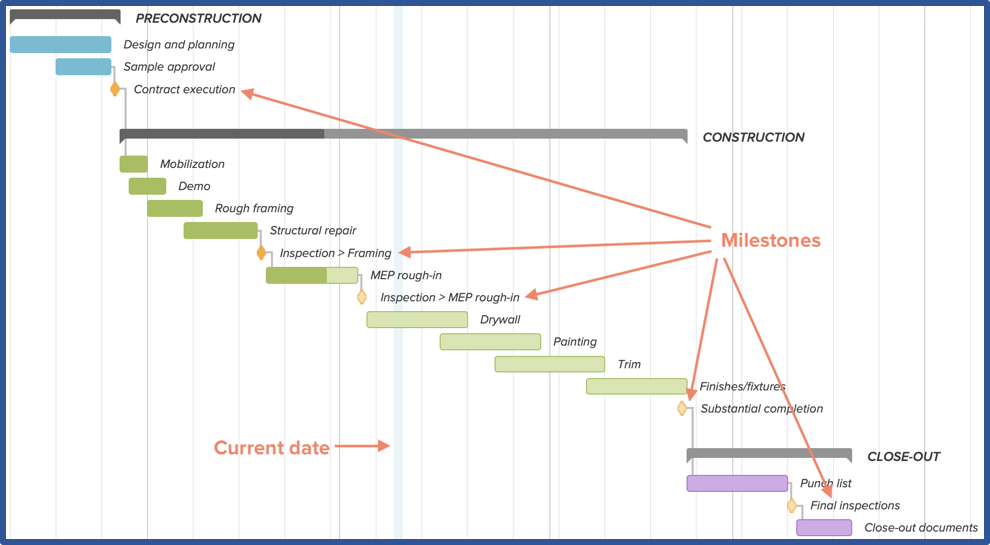our services
Project Governance



Scheduling
Costs
For lump sum projects estimating will be done once, at the time of tender closing. A number is produced and used for submitting a price to an owner, for the project. There is no review of any detail with the project team. The General Contractor takes on the entire risk of the estimate which is reflective of the quality and completeness of the bid documents, which is the owner’s risk. While this approach maybe acceptable for straight forward projects it can be risky for complex projects including renovation /restoration projects. Based on the documents received our team reviews the details and solicits input from our trade contractor partners to develop a bid price based on the documents, our experience and current market conditions.


For other project delivery models: Construction Management Fees are based on estimated project duration and level of resources required to successfully manage and execute the project. As design development proceeds, estimating continues based on updated documents. Progressive, Class “D” through Class “A”, estimates are produced. Estimates are reviewed on an ongoing basis with the owner to create an appropriate final control budget that captures all Issued for Construction (IFC) details. At this point the level of Design Development has reached a level where the owner and Bemocon may negotiate a final fixed price for the project, if desired. Construction Management allows for trade input in creating budgets with the individuals who may actually bid on and perform the work.
